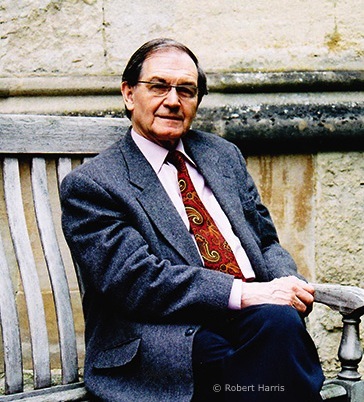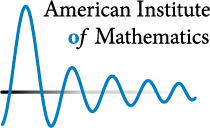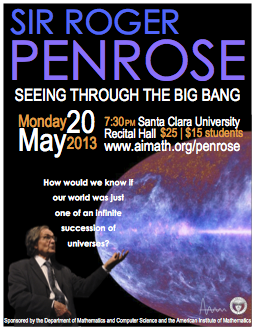A new theory proposes that the entire history of the universe as we know it is just one era of an ongoing progression.
The expansion of one
universe leads to the "big bang" of the next universe. Time and space are rescaled, and the interactions of supermassive black
holes in one universe leave an imprint on the next. An exciting aspect of this theory is that
our cosmic background radiation may contain
the fingerprints of a
previous universe.
Popular science books by Sir Roger Penrose:








The new proposal is called "conformal cyclic cosmology (CCC)." It takes our current picture the entire history of the universe, from its Big-Bang origin (but without any early "inflationary phase") to its final exponential expansion, to be but one aeon of a continual succession of such aeons. The big bang of each is taken to be a continuation of the exponentially expanding remote future of the previous one via an infinite rescaling of space and time. This rescaling is in accordance with the conformal geometry of space-time: the geometry of angles, light cones and causality, which is respected by physics in the absence of mass. Events involving supermassive black-hole encounters in the aeon prior to ours would have important observational implications for CCC, and such signals, remarkably, appear to be actually present within our cosmic microwave background. Details of this theory, writen for the general public, can be found in Sir Roger Penrose's
book Cycles of Time.

Sir Roger Penrose is the Rouse Ball Professor of Mathematics (Emeritus) of the University of Oxford. During his long scientific career he has made fundamental contributions to our understanding of general relativity and cosmology for which he was honored in 1988 with the Wolf Prize, shared with Stephen Hawking. He has written several books, among them The Emperor's New Mind, a provocative best-seller proposing the theory that consciousness is a quantum mechanical phenomenon, and Cycles of Time: An Extraordinary New View of the Universe describing in detail his theory of conformal cyclic cosmology.








